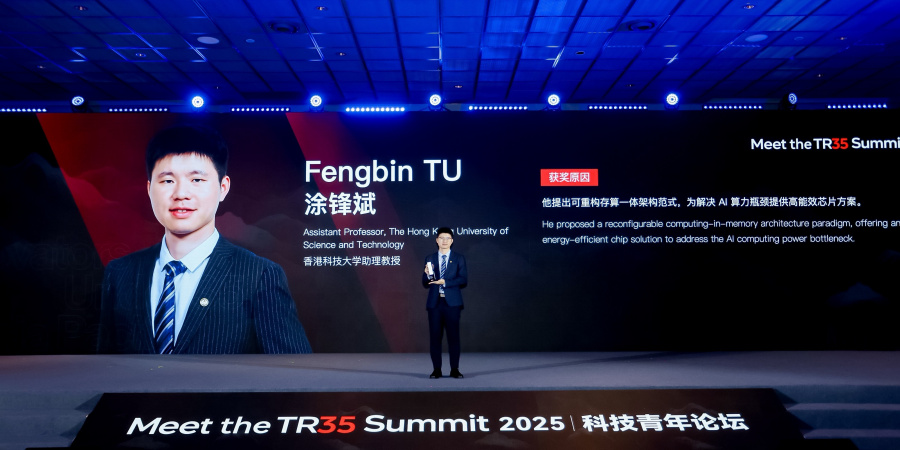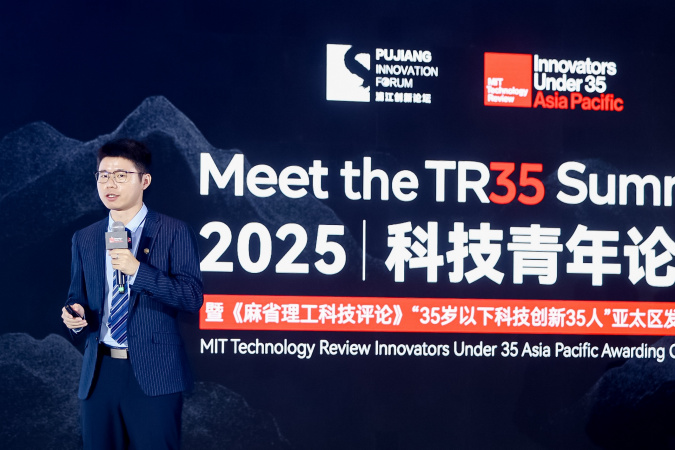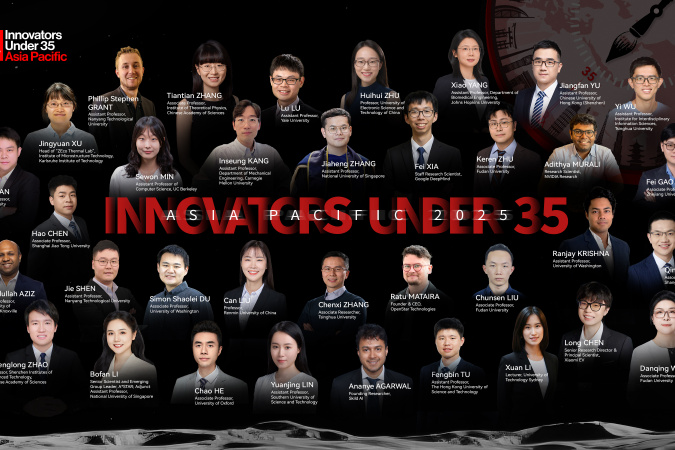Prof. TU Fengbin Named MIT Technology Review’s Innovator Under 35 Asia Pacific 2025
Prof. TU Fengbin, Assistant Professor of the Department of Electronic and Computer Engineering, has been named one of the 35 Innovators Under 35 Asia Pacific 2025 by MIT Technology Review in the inventor category. According to the citation, he “proposed a reconfigurable computing-in-memory architecture paradigm, offering an energy-efficient chip solution to address the AI computing power bottleneck.” He is the only honoree from Hong Kong this year.
Since 1999, MIT Technology Review has been running the “MIT Technology Review Innovators Under 35” (TR35) competition as a list that seeks out talented young individuals who are developing new technologies with the potential to significantly change the world. In 2014, TR35 expanded its regional competition to Asia Pacific to propel outstanding young innovators in the Asia-Pacific area onto the highest international stage.
Prof. Tu Fengbin specializes in artificial intelligence (AI) chips, computing-in-memory (CIM), and reconfigurable computing. Through architectural innovations, he has pioneered new technological pathways for high-performance and energy-efficient intelligent computing systems. He proposed the reconfigurable CIM paradigm. By integrating reconfigurable computing logic within memory, this architecture effectively tackles the “Von Neumann bottleneck” issue inherent in traditional computing architectures, significantly reducing the energy consumption and latency associated with data movement, while flexibly supporting various AI operators. The resulting ReDCIM (Reconfigurable Digital Computing-In-Memory) processor demonstrates outstanding energy efficiency when handling complex computational tasks such as floating-point operations in high-performance scenarios.
As a core member of the Codesign Research Team at HKUST’s AI Chip Center for Emerging Smart Systems (ACCESS), he worked with the team and developed a commercial-grade reconfigurable AI processor called AC-Transformer, which supports both convolutional neural networks (CNN) and Transformer models. This chip utilizes a memory-compute-aware co-optimization methodology, dynamically adjusting resource compression strategies during different computational phases, achieving system-level energy efficiency optimization. This research was presented at the 2025 International Solid-State Circuits Conference (ISSCC), renowned as the “Chip Olympics”, marking the first AI chip paper from Hong Kong accepted at ISSCC.
Related link:
- ACCESS news (Oct 3, 2025): Prof. Fengbin TU Being Named an “Innovator Under 35” Asia-Pacific by MIT Technology Review
- ACCESS news (Mar 13, 2025): ACCESS Research Paper Accepted by ISSCC



